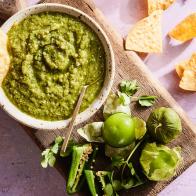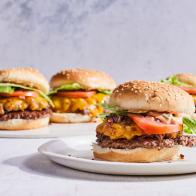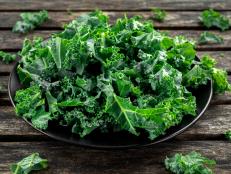Why We Should Stop Fearing Fat

Fat has been demonized — by nutritionists, doctors and the Dietary Guidelines — for so long now that it’s hard to even remember a time when low- and no-fat foods weren’t all the rage. But one man is on a mission to change that attitude.
Mark Hyman, M.D., director of the Cleveland Clinic’s Center for Functional Medicine, is the author of Eat Fat, Get Thin (Little, Brown and Company, 2016). “For 35 years we’ve been told to eat low fat, but the result is that we’ve cut fat and eaten a ton of carbs and sugar,” he says, which accounts for the corresponding surge in obesity, diabetes and other related ills over the same time period.
Dr. Hyman talked to Healthy Eats about what he calls “the big fat mess” we’re in and how we need to shift our thinking about fat in order to lose weight and be healthier.
Have we been misled about the dangers of fat for all these years?
Mark Hyman: Yes, we have. And we need to make a paradigm shift in the way we think about it. Eating fat doesn’t make you fat. In fact, it’s important for brain health and overall health. That recommendation to eat less fat was based on some very shoddy science, and it’s now clear that it was wrong.
If fat isn’t the enemy, what is?
MH: Sugar. Metabolism is not a math problem of “calories in, calories out.” All calories do not act the same in your body. When you eat fat calories, they shut off the hunger switch, speed up your metabolism and burn fat. Eating calories from sugar does the opposite. Sugar, not fat, is also what’s linked to heart disease. The cholesterol that causes heart disease is a combination of low HDL, high triglycerides and small-size LDL particles. Sugar causes all of that to get worse, but fat actually fixes that cholesterol ratio.
So does this mean we have free rein to eat as much ice cream as we want?
MH: Absolutely not. The biggest danger is sweet fat. Sugar and fat together drives weight gain, inflammation and high insulin levels. It’s a terrible cascade.
Other than “sweet fat,” are there types of fat we still want to avoid?
MH: Trans fats are toxic and not safe to consume. There are some concerns about the safety of refined vegetable oils, so I recommend limiting those. But saturated fat has been overly demonized, and its connection to heart disease has been overblown. Saturated fat is not a problem as long as it is not consumed in conjunction with sugar.
Where do you get most of your fat calories?
MH: I focus on good fats like extra virgin olive oil, fish oil, nuts, seeds and avocados. Most of your diet should come from plant foods, but I don’t recommend avoiding animal proteins and fat, from a health point of view. I do think that, from an environmental standpoint, it does make sense to limit them and to focus on healthier meats that are grass-fed.
Sally Wadyka is a Boulder, Colorado-based journalist who writes about nutrition, health and wellness.
































